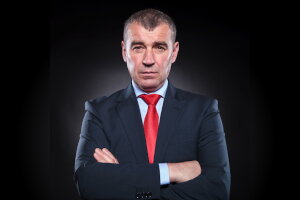
I’ve been told over the years by interviewees that I was their toughest interview ever.
Now, I know what you’re thinking—it sounds like I’m a tough, mean interviewer. Actually, far from it. I’m a very relaxed interviewer and my overall approach, in general, is very non-threatening. I try to help candidates feel relaxed and at ease. I really do want them to be at their best in the interview.
Yet I do understand what they’re saying. I am a tough interviewer. Here are several reasons why:
#1 – I only ask competency-based behavioral interview questions.
So what does that mean? It means that I only ask questions that directly correlate to the competencies required for success in the role. And I only ask about those competencies using behavioral interview questions. So candidates cannot get away with giving me a scenario answer (which is future looking, such as “What I would do in that situation is…”). They have to give me a specific example from their past experiences and then back it up with details.
#2 – I often time-bound my behavioral questions.
So instead of asking “Give me an example of a situation when you had to resolve a work conflict.” I will usually ask: “Give me an example of a situation when you had to resolve a work conflict in the last month.” While you might have a pat answer for that first question, the second one requires a more recent example. And one that you probably haven’t thought of in advance nor practiced your answer. You’re raw. And real.
#3 – I require a full S-T-A-R answer to my behavioral questions.
I won’t let you off with a short or brief answer. You have to tell me about the situation or task (S-T), the action you took (A) and the result (R). If you fail to complete any one of these areas, I will back you up and ask you to fill in the specifics. What was the situation or task? What action did you take? What were the results? Simple questions, yet tough for most to answer.
#4 – I will drill down into the details.
I want to know specifics, not just the surface level details. So you will be giving me a lot more information than you are typically used to giving in an interview. One question may draw out two or three or five or ten additional questions drilling into the details. When you are finished with me, you will feel like you’ve just been interviewed by an investigative reporter.
#5 – I will ask you for a second and even a third example.
If you give me a great first example, especially if it sounds like one you prepared in advance, I will ask for more. My favorite interview question of all time: “Give me an example of your greatest accomplishment in life.” The tougher question is: “Give me an example of your second greatest accomplishment in life.” The even tougher question is: “Give me an example of your third greatest accomplishment in life.” You may have an easy answer for the first one, but not the second or third. I want to drill past your practiced veneer.
#6 – I can usually figure out pretty quickly if you’re lying or stretching the truth.
Don’t attempt to bluff me or I will drill hard into the details. Do you remember the “milking cats” answer in Meet The Parents? That was Robert DeNiro simply drilling into details. And if I am not sure if you’re telling the truth, I will use TORC, or Threat Of Reference Check, to verify your story. “You mentioned that ____ is a reference for you. Can she give me further insights into that story?” I can tell from your response if you’ve been caught red handed stretching the truth.
#7 – No one gets away with “no answer” as an answer.
If you can’t think of an answer right away, that’s OK, I’ll wait. That awful, uncomfortable silence is tough. But I won’t let you off the hook. I will wait. In dead silence. Interviewees hate dead silence. And some of the most insightful answers come after that dead silence.
My objective in the interview is to cut through your interviewing veneer to find out who you really are, not just how well you perform on practiced interview questions. So interviewees are often exposing a part of themselves to me that they’re not used to exposing.
Does that make me a tough interviewer? Yes, I guess it does. But my objective is to seek out the best fit for the role. If you’re the best fit, my objective is to draw it out of you. If you’re not, well, that’s the reason we do this step called the interview. For those rejected, there is another role out there, it’s just not this one.
And I am OK with that.
P.S. The good news is that the vast majority of interviewers do not interview like me. That’s what makes often makes mine the toughest interview ever. But if you can interview with me, you can likely interview with just about anyone.



